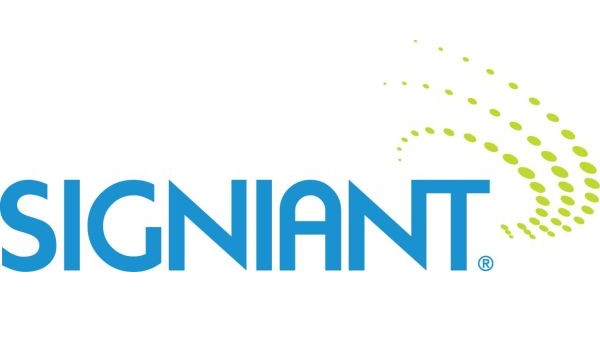FCC Rejects Broadcasters' Call to Revamp How Regulatory Fees Are Calculated
The NAB and state broadcast associations had argued they were paying “burdensome” fees for the work the FCC does on broadband

The professional video industry's #1 source for news, trends and product and tech information. Sign up below.
You are now subscribed
Your newsletter sign-up was successful
WASHINGTON D.C.—The Federal Communications Commission has issued its Fiscal Year 2022 Regulatory Fees Report and Order, which rejects arguments by the NAB and state broadcasters that the FCC should revamp the way it calculates regulatory fees.
The FCC did, however, issue a Notice of Inquiry stating that “the Commission seeks further comment on its methodology for allocating indirect FTEs, as raised in the FY 2022 NPRM. While we found above that the record supported a limited correction to the method used for calculating the fees associated with certain indirect FTEs in the Universal Service Fund context, we seek to more broadly explore these issues outside of the short timeframe necessitated by the annual regulatory fee proceeding. The responses we receive will help us determine if there are lines of inquiry worth exploring in order to further revise our methodology. Finally, we hope that the comments and replies will allow interested parties to gain a better understanding of the regulatory fee process and the issues of importance to the various groups affected by our regulatory fee policies.”
The FCC is required to cover its entire budget from regulatory fees. The NAB and state broadcast associations had raised a number of objections to the way those are calculated, including arguments that broadcasters were paying “burdensome” fees for the work the FCC does on broadband.
“We decline to modify our methodology to continue to exempt broadcasters’ from the costs associated with the Commission’s broadband work,” the FCC said in the order.
The FCC noted that filings from the “NAB and the Joint Broadcasters [state broadcasters associations] question our methodology and argue that the Commission assigns a disproportionate share of the costs of the 343 indirect FTEs to the Media Bureau without any analysis performed as to what portion of those indirect FTEs actually work on Media Bureau issues.”
“NAB also argues that the Commission should ensure that broadcasters bear no responsibility for the 84 direct FTEs in the Media Bureau that the Commission has stated to Congress are working to promote a 100% broadband policy, and that these 84 Media Bureau FTEs should be reclassified as indirect,” the FCC reported.
“These commenters fail to recognize the fundamental task assigned to the Commission,” the FCC said in rejecting calls to change the way it calculates fees for broadcasters. “The Commission must recover the full S&E appropriation through an offsetting collection. The S&E appropriation does not solely fund staff time spent directly regulating regulatory fee payors. The S&E appropriation funds all non-auctions-related costs, such as salaries and expenses of all non-auctions funded staff; indirect costs, such as overhead functions; statutorily required tasks that do not directly equate with oversight and regulation of a particular regulatee but instead benefit the Commission and the industry as a whole; support costs, such as rent, utilities, and equipment; and the costs incurred in regulating entities that are statutorily exempt from paying regulatory fees (i.e., governmental and nonprofit entities, amateur radio operators, and noncommercial radio and television stations), entities with total annual assessed fees below the de minimis threshold, and entities whose regulatory fees are waived. For that reason, we do not examine whether all indirect FTEs work on Media Bureau issues or on any other core bureau issues. Instead, we recognize that the indirect FTEs’ work may not directly address oversight and regulation of just one particular regulatory fee category and may instead cover many different regulatory fee categories or issues not pertaining to any regulated industries.”
The professional video industry's #1 source for news, trends and product and tech information. Sign up below.
In response, NAB President and CEO Curtis LeGeyt issued a statement saying “NAB is very appreciative of the hard work and thoughtfulness shown by the Commissioners and their staffs to reduce the exorbitant increase broadcasters faced in the FCC's draft regulatory fees order. We are also grateful to the bipartisan coalition of lawmakers who voiced their opposition to overly burdensome regulatory fees that would jeopardize local broadcasters' ability to provide local news, emergency information and community service to millions of Americans.”
"Despite these important advances, there is more work to do,” he said. “We hope the Notice of Inquiry serves as a springboard to a thorough modernization of the FCC's regulatory fee methodology to ensure all parties that utilize and benefit from the Commission's work pay their fair and appropriate share. It is no longer good enough to tinker around the edges. We remain committed to working with the FCC, lawmakers and stakeholders to create a regulatory fee structure that promotes fairness, parity and consistency."
George Winslow is the senior content producer for TV Tech. He has written about the television, media and technology industries for nearly 30 years for such publications as Broadcasting & Cable, Multichannel News and TV Tech. Over the years, he has edited a number of magazines, including Multichannel News International and World Screen, and moderated panels at such major industry events as NAB and MIP TV. He has published two books and dozens of encyclopedia articles on such subjects as the media, New York City history and economics.

